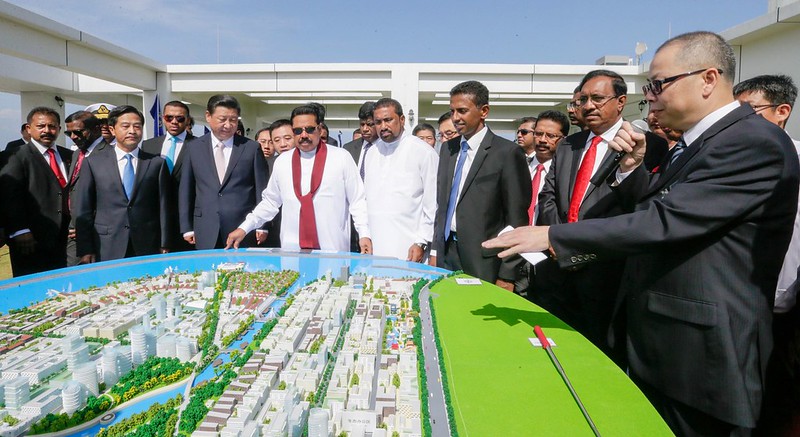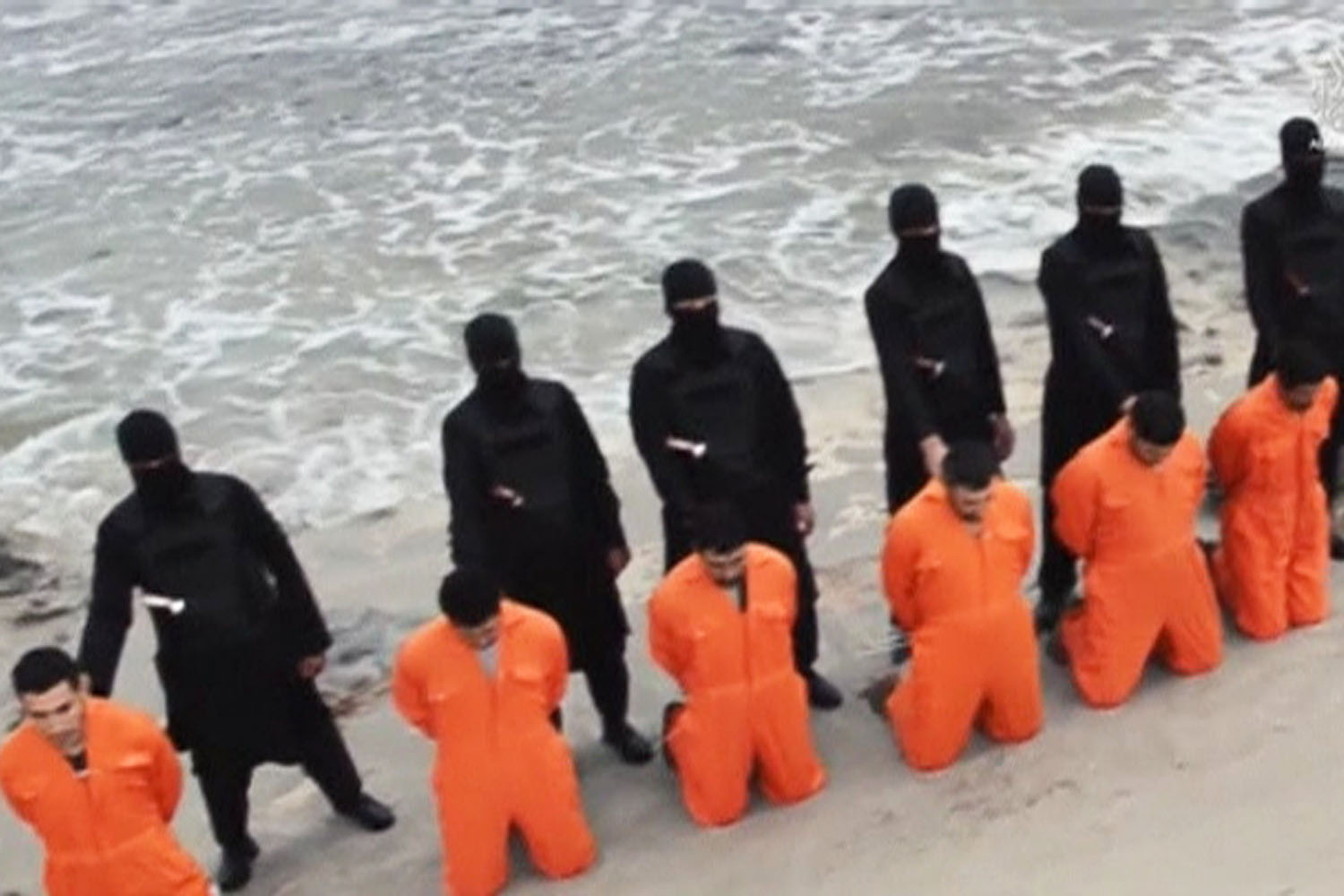Since the Easter Sunday bombings that rocked Colombo, Sri Lanka, on April 21, 2019, killing more than 250 people and injuring another 500, questions remain unanswered surrounding the role of the Sri Lankan military and intelligence services before and after the event. Even though the Sri Lankan authorities blamed a local group, National Thowheed Jamaath (NTJ), shortly after the attacks, a closer look at the aftermath raises the suspicion that the Sri Lankan government’s ascription of blame to NTJ might have been a hasty, or even dishonest, move. After all, as reported by the New York Times, it is surprising that this low-profile group managed to launch a rather complex and sophisticated attack, with multiple suicide bombers striking different places roughly simultaneously and without warning.
Indeed, due to the long civil war against the Liberation Tigers of Tamil Eelam (LTTE), also known as the Tamil Tigers, which launched numerous terrorist attacks in Colombo over the years, Sri Lankan security forces have become adept at foiling such operations. Moreover, the negligence on the part of Sri Lankan intelligence agencies comes as a big surprise, given that they received detailed and precise intelligence passed along by neighboring India, which warned of an imminent attack. Hence, even experts are confounded about how such an attack of this scale and sophistication could occur under the nose, so to speak, of the Sri Lankan intelligence agencies.
It is difficult to conceive that this attack took place without the knowledge of at least some elements of the Directorate of Military Intelligence (DMI) and Terrorism Investigation Department (TID). Sri Lankan intelligence has been extremely vigilant about preventing a revival of the civil war that the security forces of the country fought for over 30 years against the LTTE, going so far as to arrest Tamil university students who had pictures of the leaders of the LTTE in their classrooms.
To fully understand the implications of the Easter Sunday bombings, one must ask the following questions:
- Among the stakeholders in Sri Lanka, who would benefit from attacking a Christian minority group in a mainly Buddhist-majority country?
- Does ISIS have such a reach in Sri Lanka? If so, why did they choose Sri Lanka?
- And most importantly, why did the Sri Lankan security establishment and intelligence community neglect the precise intelligence repeatedly provided to them by India?
The international community must find answers to these questions first so that it can solve the puzzle of the perpetrators’ real identity and motives.
There is evidence to suggest that the current Sri Lankan President, Gotabaya Rajapaksa, a retired Sri Lankan army officer and the former Secretary of the Ministry of Defense and Urban Development of Sri Lanka, who was then planning to campaign for president in the election of 2019, supported and funded the NTJ, as claimed at a press meeting by a then Sri Lankan cabinet spokesperson, Dr. Rajitha Senaratne. He stated that “dozens of NTJ members were on the payroll of Sri Lankan intelligence linked to Gotabaya Rajapaksa,” and again that, “at least 26 members of the recently banned NTJ, who are being blamed for the Easter Sunday attacks, were being paid by Sri Lankan intelligence and linked to Gotabaya Rajapaksa.” Even a former Sri Lankan navy chief of staff, Vice Admiral (Rtd.) Mohan Wijewickrama, corroborated in a tweet the charge that NTJ might have been on the payroll of Gotabaya Rajapaksa. Weeks after the bombings, the former defense secretary announced his election bid.
The Sri Lankan military operates above the law and is contemptuous of the judicial process. For instance, the Sri Lankan military defended its decision to reinstate an intelligence official, Major Prabath Bulathwatte, arrested in 2017 on suspicion of attacking journalists, to investigate the Easter Sunday bombings. According to a report by Reuters, the officer in question was arrested on suspicion that he was behind the abduction and torture of Sri Lankan editor Keith Noyahr in 2008 and the murder of Lasantha Wickrematunga, an outspoken editor of The Sunday Leader newspaper, who was killed in 2009.
Since then, the behavior of the Sri Lankan leadership has been unrepentantly provocative. The appointment of Sri Lanka’s new army chief, Lt. General Shavendra Silva, in early 2019, was criticized by the U.N., the United States, and the European Union. During the final stages of the country’s military campaign in early 2009, Silva commanded Sri Lanka’s 58th division. Under Silva’s command, places designated as safe zones (no fire zones) and hospitals were deliberately bombed, resulting in the deaths of tens of thousands. Large number of Tamil civilians, including infants and children under 10 years, who surrendered to the 58th army division, were never to be seen again and are now regarded as having “disappeared.” The human rights organization, International Truth & Justice Project (ITJP), which has focused its work on atrocities committed during the Sri Lankan civil war, called the appointment “a shocking new low for Sri Lanka.” This is illustrative of the brazenness of the Sri Lankan government’s contempt for sensitivity about ongoing legal matters to do with human rights abuses and war crimes.
In another instance of judicial meddling by the state, the then Sri Lankan President, Maithripala Sirisena, pardoned a hardline Buddhist monk who was accused of inciting violence against ethnic minority Muslims and even convicted of contempt of court. The president’s office declined to give any reason for the pardon, which was condemned by a security think-tank as a blow to Sri Lanka’s already “battered rule of law”. The pardoning of Galagoda Aththe Gnanasara, head of the hardline Bodu Bala Sena (BBS) or “Buddhist Power Force,” came a week after Buddhist groups attacked Muslim-owned homes, mosques and shops in apparent reprisals for the Easter Sunday bombings. Still, Gnanasara was sentenced to six years in prison in August 2018 over a 2016 incident ,when he interrupted a court hearing about the abduction of a journalist in which military intelligence officials were accused.
Another suspicious incident surrounding the Easter Sunday bombing is that, even though the government of Sri Lanka blocked all social media sites, including Facebook and Twitter, following the incident, there were still some photos circulating on Facebook and other social media sites of the alleged perpetrators and their bomb-making factories, which were, in fact, of seemingly random individuals. Their identity was fact-checked by AFP, and they were found not to be Sri Lankan nationals at all. In addition, a local newspaper, the Sunday Observer, reported that a Sri Lankan-born Singaporean academic and author of several books on terrorism, Dr. Rohan Gunaratna, created a considerable stir in Colombo in May 2019, when he made startling claims at a seminar organized by Gateway College, asserting the “complete collapse” of the national security machinery in the country. All of this is to say that it is unknowable whether the video footage of the alleged suicide bombers that the Government of Sri Lanka released is genuine or not. This raises doubts about the official narrative that the Easter Sunday bombers were NTJ, or even affiliates of ISIS, targeting Sri Lanka. ISIS may very well claim responsibility for anything that furthers its bloody cause. But this could simply be the opportunistic exploitation of someone else’ operation. Alternatively, it is plausible that the attacks were staged by Sri Lankan intelligence agencies, possibly with foreign support. This further raises suspicion of possible Chinese involvement.
According to some reports, President Gotabaya Rajapaksa is a tool of Chinese foreign policy. The Colombo Telegraph, after the Easter Sunday bombings, exclusively revealed that Retired Major General Kapila Hendawitharana, former Director of Military Intelligence, and Gotabaya Rajapaksa’s right-hand man in the Defense Ministry, is also a collaborator with Chinese Intelligence. The article revealed an audio recording of Hendawitharana, who is also the security head of Shangri-La, telling a Chinese intelligence officer to use diplomatic means to sabotage the relationship between the United States and Sri Lanka. Shockingly, the article avers:
“Hendawitharana is privy to American involvement in Sri Lanka’s new war against terror because of his role in security at Shangri-La, but his concern is not for his employer, in whose hotel so many innocents died, but instead for his handlers in Chinese Intelligence and his political contacts in the Joint Opposition.”
These are disquieting allegations.
In the audio recording, available exclusively below in this report, Hendawitharana is heard telling his Chinese handler to, “appraise your diplomatic channels to work on the US-Sri Lanka relationship.”
“There is some development taking place for which the opposition parties, joint opposition, are making hell of a fit,” he warns. “They want to give Americans free passage for any requirement if the requirement arises for them to occupy Sri Lanka, even making use of the harbors and airports.”
“I am also on the watch,” he said. “The government will deny. I don’t know the underhand plans of them.”
“Make your diplomatic channels aware of this,” the former intelligence chief tells the Chinese, “and ask them to take it up with the foreign ministry of Sri Lanka in advance as a deterrent action.”
In fact, Gotabaya
Rajapaksa is not only a probable Chinese asset,
but also a hardline anti-Indian and anti-Western antagonist who reserves
particular scorn for the United Nations. He accused the UN of having been
infiltrated by terrorists “for 30 years or so,” and as a result, he
claimed, the UN has been fed disinformation. He also alleged that Britain and
the EU were bullying Sri Lanka and concluded that Sri Lanka “does not need
them,” and that they don’t provide any significant amount of aid to the
country.
This contempt for the UN and attempts to undermine its credibility only further
stokes suspicion, because the Sri Lankan political and military leadership,
including President Gotabaya Rajapaksa, would do anything to evade the UNHRC war crimes investigations
even if it has to be disruptive terrorist attacks that would help derail UNHRC proceedings.
Besides, an
investigation conducted by the Sri Lankan Parliamentary Select Committee,
dominated by MPs opposed to the Rajapaksa family, stated the extent of the
intelligence and police failings raised the question of whether the failure to
stop the attacks may have been deliberate.
While it is impossible to give a definitive answer to the question of what the motive of the Sri Lankan military or government would be to stage an attack on its own citizens, one can theorize plausible explanations for such a hypothetical false flag operation. The war crimes investigations were going to be led and sponsored by Western nations, especially the United States, to investigate crimes committed by top-ranking Sri Lankan officials, who were either running for office or evading war-crimes charges. This endless foot-dragging and obstructionism of the Sri Lankan regime when it came to war-crimes investigation by the UNHRC, reported roughly one month before the attacks, clearly validates the argument that the Sri Lankan military intelligence could have orchestrated the attacks while pitting two minority groups, namely the Muslims and Christians against each other. This would mean the Sri Lankan military deviously advanced its hidden agenda that the country is still under threat from local terrorist groups linked to ISIS. With this notion, the Sri Lankan intelligence killed two birds with one stone: (1) the attacks further reinforced the Sri Lankan psyche that only the country’s former defense chief, Gotabaya Rajapaksa, who was credited for winning the war against the LTTE, can save them from renewed threats emanated from terrorism, and (2) it justified and distracted the international communities, including the UNHRC from permanently putting a stop to the war crimes investigation.
So, if one connects the dots, the Easter Sunday bombings took place for one of two possible reasons. Either it was a plot to attack Christians by radicalized Muslims with help, prodding, funding and brainwashing from an external source – namely, ISIS – or, it was orchestrated by the Sri Lankan intelligence agencies. The latter scenario appears to offer a better explanation for Sri Lankan security services’ disregard for intelligence warnings from India. Therefore, the Easter Sunday bombings in Sri Lanka could have been a ‘Reichstag Fire’-like ruse facilitated by the Sri Lankan authorities in order to promote their own interests through popular approval of the retraction of civil rights, designed to give the government more power over domestic security. Moreover, such an operation could have been covertly aided by a foreign power, namely China, that would potentially benefit from a regime drawn ever more into its orbit and away from the United States and transnational human rights institutions.
Photo: President Mahinda Rajapaksa and President Xi Jinping inspecting a model of the Colombo Port City project, by Mahinda Rajapaksa via Flickr. Licensed under CC BY-NC 2.0.
Disclaimer: Any views or opinions expressed in articles are solely those of the authors and do not necessarily represent the views of the NATO Association of Canada.




